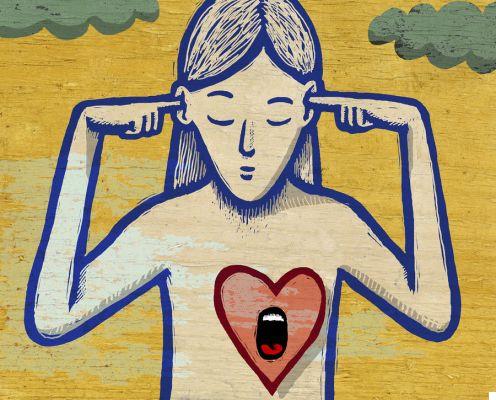 We all have experienced stress firsthand. There are situations that exceed our limits and put a strain on our psychological resources, in these moments we feel tense and irritable. Many of these situations cannot be avoided. However, we can learn to manage stress, because, after all, our perception of the situation and the attitude we adopt towards it matter a lot. How to fight stress?
We all have experienced stress firsthand. There are situations that exceed our limits and put a strain on our psychological resources, in these moments we feel tense and irritable. Many of these situations cannot be avoided. However, we can learn to manage stress, because, after all, our perception of the situation and the attitude we adopt towards it matter a lot. How to fight stress?A particularly interesting study conducted at North Carolina State University reveals which are the most effective techniques for relieving stress and also tells us which ones are not working.
These researchers recruited 43 people and followed them through their daily activities for eight days. They were thus able to evaluate firsthand not only the situations that cause the most stress, but also the way to deal with them and the emotions they generate. These people were also asked to anticipate stressful events that could arise the following day and to plan their management.
Obviously, by the end of the study, the researchers noted that people employed different strategies to cope with stress. However, two techniques proved particularly ineffective as they significantly worsened people's mood.
- Stagnant reflection. In this case, the person reflects excessively on the problem but not on the causes and possible solutions so this technique only serves to increase the level of stress.
- Fantasizing about the consequences. In this case, people imagined the worst possible scenarios, fantasizing about the consequences that each situation would have. Obviously, projecting oneself into the future in such negative terms only serves to increase stress and anxiety, not to find solutions.
Five effective strategies to combat stress
1. Reconsider the situation. We tend to view events as positive or negative, but we realize that our expectations and how to deal with them largely determine their emotional impact. Therefore, one of the most effective techniques for relieving stress is to reframe the situation, think about the positives. For example, if we are nervous before speaking in public, we may think this will be an opportunity to test our skills and grow.
2. Adopt a global perspective. We often get stressed out with the little details, mundane things that ultimately make us smile. This happens because at that moment we have blurred vision, we are unable to get a general picture of the situation. Therefore, to deal with stress sometimes you have to take a step back and try to get a global picture. When we are able to see the event in its true dimension, including our reaction to it, we usually relax by realizing that we were exaggerating. Furthermore, in this way it will be easier to glimpse solutions, because we no longer focus our gaze on individual trees and we can thus see the entire forest.
3. Adjust expectations. Very often it is not situations that stress us, but our expectations about it. When we have excessive expectations and they are not met, we end up frustrated and anxious because things did not go as planned. Therefore, learning to be flexible, adjusting our expectations and accepting uncertainty is the best strategy to eliminate the word stress from our vocabulary.
4. Write about the event. Giving free rein to our emotions is not always positive, sometimes it can backfire on us, further intensifying the discomfort. In these cases, it is best to write about what we feel. When we write we are able to reflect, and in this process of introspection we do not let emotions overwhelm us but we look for alternative solutions. In fact, a study devoted to the therapeutic power of writing revealed that people who wrote about negative facts not only felt better, but also took a more proactive attitude and performed better in stressful situations.
5. Accept the situation. Sometimes we are unable to influence the course of certain events. If we cannot do anything to change them we simply have to accept them, because denying or fighting them is not only stressful, but also tiring. When you choose not to swim against the current, you immediately feel better. For example, a noise that disrupts the flow of work can become a stressor that interrupts us if we give free rein to anger. However, if you hear the noise and decide to continue despite the discomfort, the stress will lessen. Breathe deeply and repeat: "Everything is fine, I can go on".


























